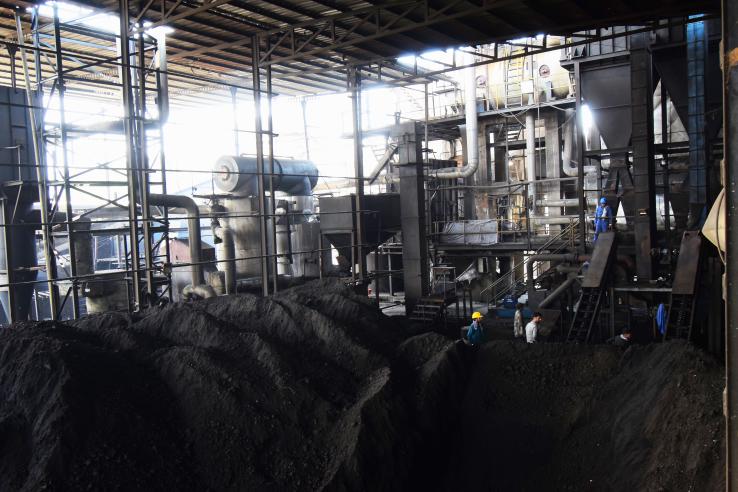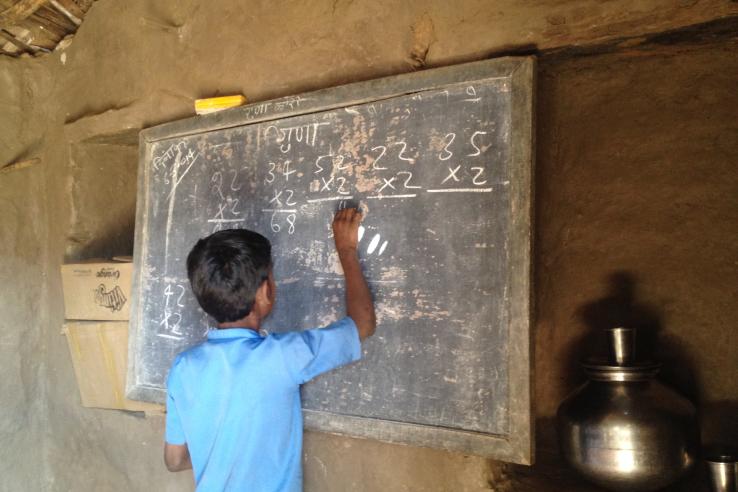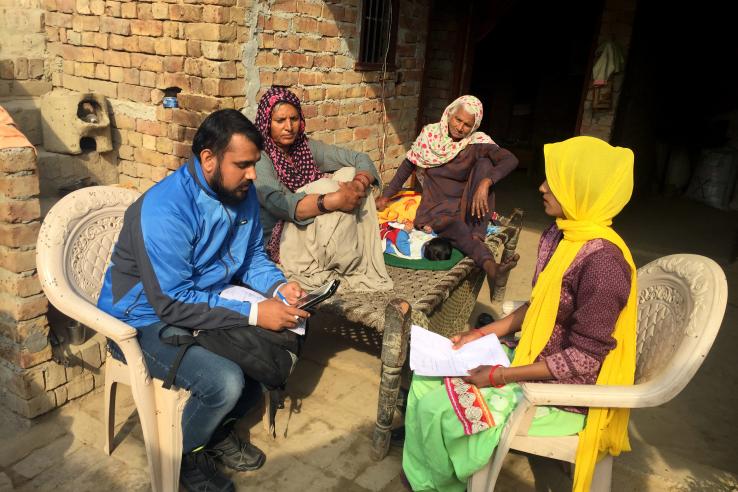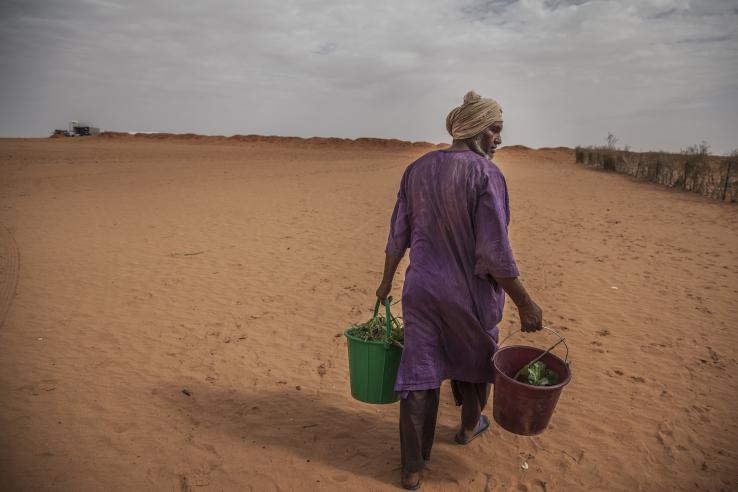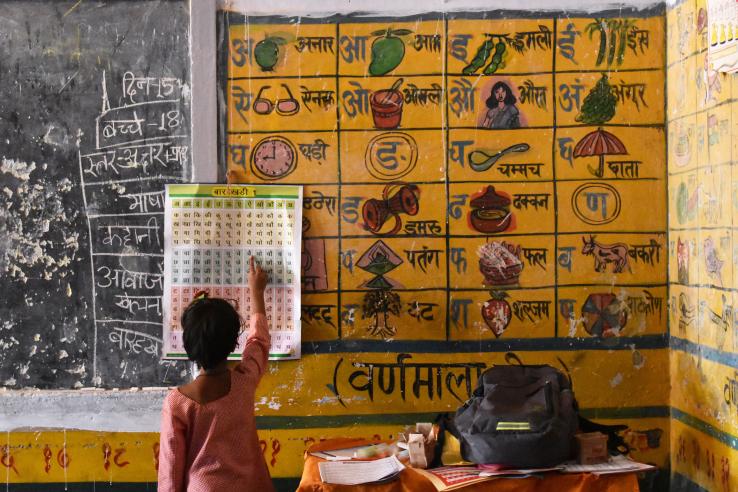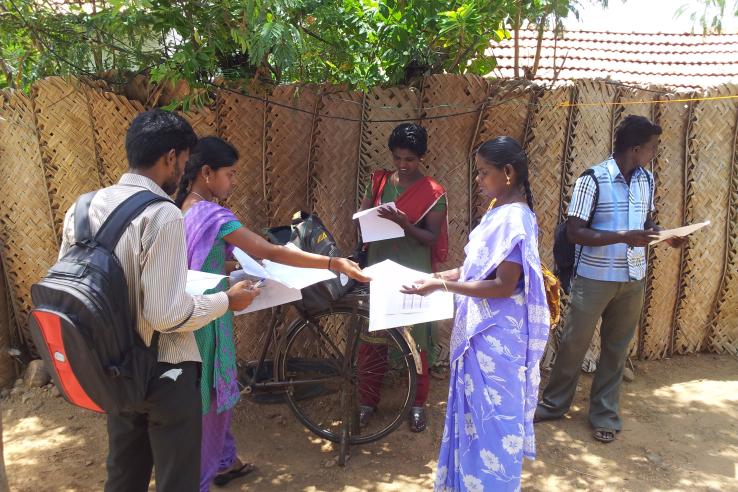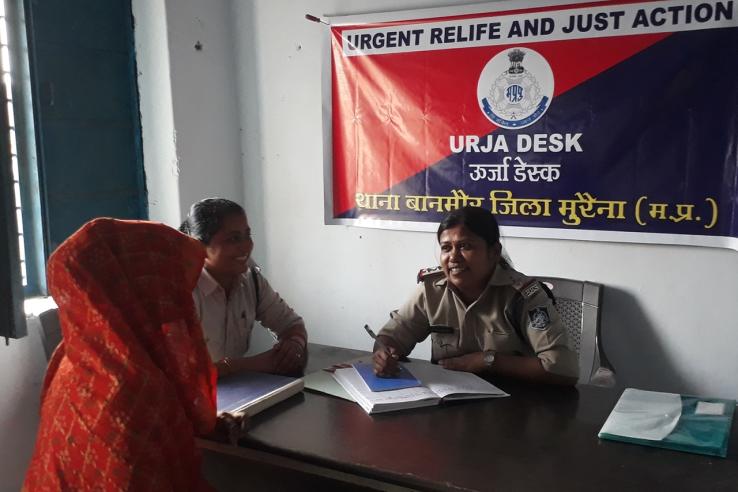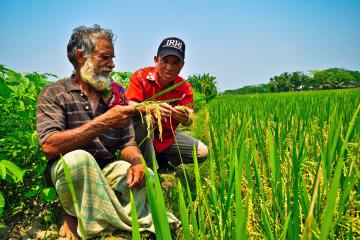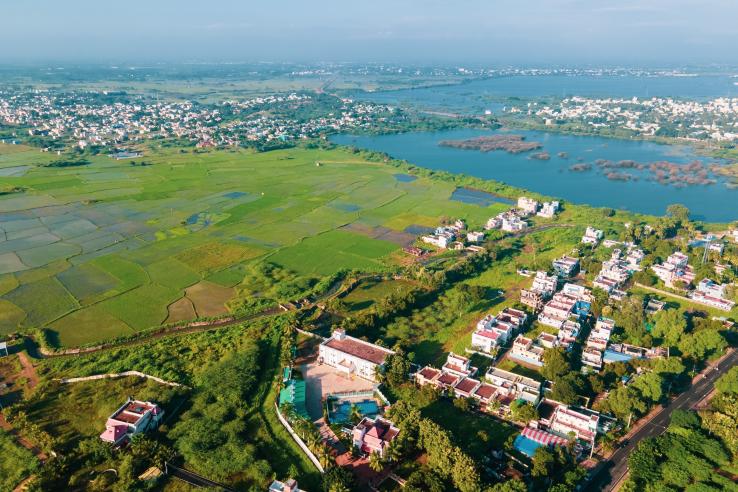Displaying 3451 - 3465 of 8491
Evidence to Policy Case Study
Case study
A market for designed to cut air pollution was scaled to reach over 15 million people with cleaner air in Gujarat, India.
Blog
In this episode of the Researcher Spotlight Series, host Sambhav Choudhury speaks with Harini Kannan, research scientist at J-PAL South Asia. Harini shares her journey from being inspired by budget speeches as a child to pursuing a career in development economics.
Blog
In this episode of the Researcher Spotlight Series, host Sambhav Choudhury speaks with Ariel Zucker, assistant professor of economics at UC Santa Cruz. Ariel discusses her journey from an early interest in global health disparities to becoming a development economist specializing in experimental...
Update
J-PAL Updates
In the August edition of our newsletter, we share the latest from The Evidence Effect on taking action in conflict and crisis and effective policies in high-income countries, an opportunity to lead J-PAL Africa as Executive Director, and a new podcast series from J-PAL South Asia on research in...
Blog
In this episode of The Evidence Effect, host Sambhav Choudhury speaks with Shobhini Mukerji, Executive Director of J-PAL South Asia. From her transformative summer internship with education nonprofit Pratham to becoming a principal investigator on groundbreaking research, Shobhini shares her journey...
Blog
In this episode of the Researcher Spotlight Series, host Sambhav Choudhury speaks with Gautam Rao, associate professor of economics at UC Berkeley. From his unconventional journey from electronics engineering to economics, Gautam shares insights on his behavioral economics and mental health research...
Blog
In this episode of the Researcher Spotlight Conversation Series, host Sambhav Choudhury speaks with Sandip Sukhtankar, Professor of Economics at the University of Virginia. He discusses the unique challenges and rewards of conducting research with law enforcement agencies, offers practical...
Research Paper
File: Research paper
The Evidence Effect
Perspective-taking—a psychological approach that encourages people to envision spending a day in another person's shoes—can foster trust, inclusion, and cooperation in communities divided by crisis.
Blog
The people in urgent need of humanitarian assistance are among those hardest hit by cuts to foreign aid. With humanitarian funding at historic lows, many essential services are being scaled back or suspended altogether, leading to preventable deaths and putting millions more lives at risk. Restoring...
The Evidence Effect
Flood-tolerant seeds help farmers adapt to extreme weather without sacrificing their yields, making investing in change worthwhile.
Event
This training workshop aims to strengthen the capacity of government employees from the Ministry of Industry and other relevant ministries and agencies.
Blog
A growing number of economists are incorporating remotely sensed (RS) data—satellite data in particular—into their studies. For randomized evaluations, remote data collection offers alluring possibilities: lower data collection costs, a longer time series of data both before and after an...
Resource
Layout Page
Our staff consists of policy and research experts who forge and maintain relationships with our partners, use rigorous research methods to measure progress, and disseminate our learnings to a wider audience.
Research Paper
File: Research paper
